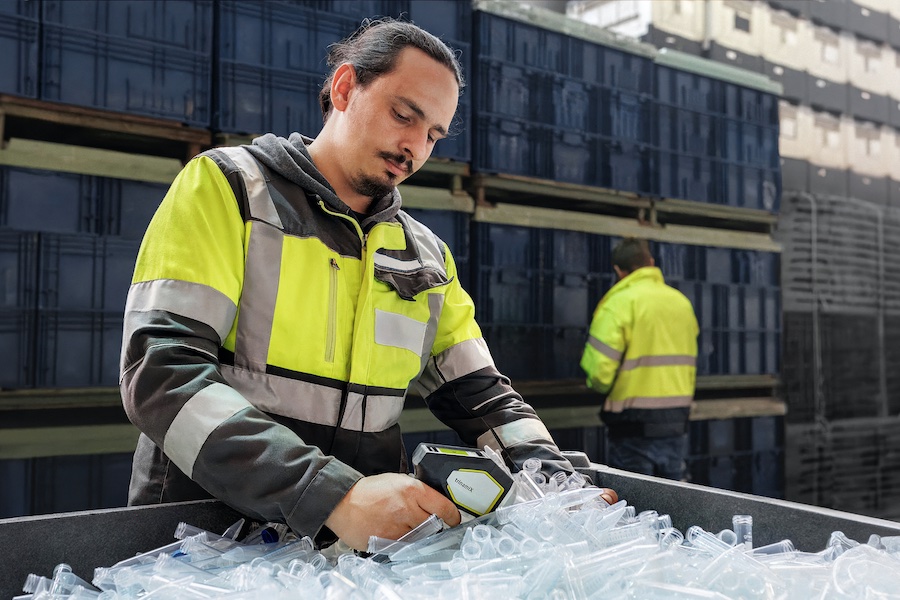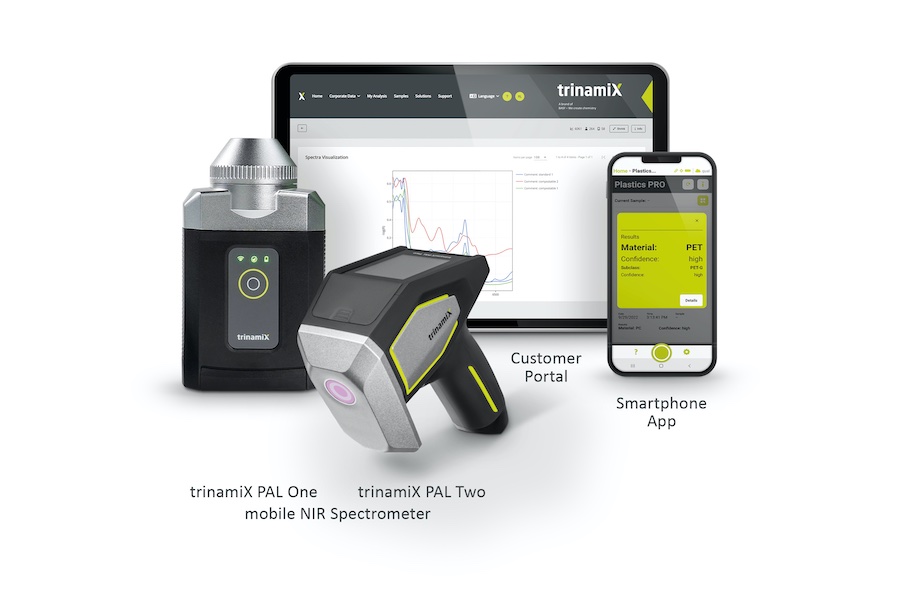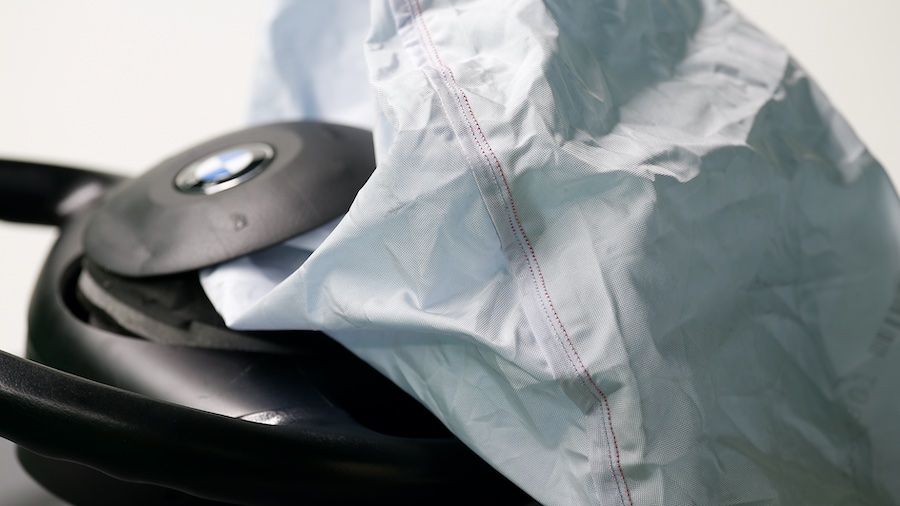#Recycling / Circular Economy
trinamiX expands its portfolio for plastics and textile identification with new handheld NIR spectrometer “trinamiX PAL Two”

Their solutions facilitate the design of sortable plastic packaging, ensure quality control for incoming and outgoing materials, and promote cleaner sorting methods that improve recycling efficiency. A highlight of the event will be the presentation of the new handheld spectrometer, trinamiX PAL Two. Attendees are invited to visit trinamiX at booth #E134 to experience the company’s Mobile NIR Spectroscopy Solutions firsthand on April 1-2, 2025.
trinamiX provides a user-friendly solution for the quick identification of plastics and textiles with just the push of a button. This system features a robust, portable NIR spectrometer, accompanied by an app that leverages sophisticated cloud-based data analysis, along with a customer portal for managing results, downloading reports, and exporting data. The solution boasts the capability to accurately identify over 30 different types of plastics, including common consumer plastics such as HDPE, LDPE, PP, PET, PS, and PVC, as well as engineering plastics like PA, ABS, PC, and PLA. Additionally, it can quantify blends of polyethylene (PE) and polypropylene (PP).
In the realm of textile identification, the solution can detect a diverse array of fiber materials including acrylic, cotton, elastane, polyamide (with subclasses PA 6 and PA 6.6), polyester, polypropylene, silk, viscose, and wool. It also has the capability to analyze textiles composed of multiple materials.
To meet the specific needs of recyclers, trinamiX offers a flexible solution that encompasses various configurations. Users can choose between a compact handheld device for quick on-the-go checks or a semi-automated setup that can be seamlessly integrated into a sorting table, allowing for automatically triggered scans for enhanced efficiency.

Hardware portfolio expansion: trinamiX PAL Two spectrometer
trinamiX will unveil the newest addition to its Mobile NIR Spectroscopy Solutions at PRSE: the handheld spectrometer trinamiX PAL Two. Attendees can look forward to live demonstrations of this new device. Designed with ergonomics in mind, trinamiX PAL Two allows for single-handed operation, making it user-friendly and convenient. Additionally, it includes a built-in display that presents measurement results directly on the device, enhancing usability and accessibility for users.
Design for recyclability – ensuring NIR detectability
Increasingly stringent regulations, such as the “Packaging & Packaging Waste Regulation” in the European Union, introduce new requirements for packaging design, the use of recyclates in plastic packaging, and specifications for reusable systems. To enable efficient plastic recycling, materials must be accurately identified and sorted. As the sorting process relies on NIR technology, all material must be “NIR detectable”. The design of the packaging plays a crucial role for this parameter. Features like color, labels, additives and more can impact a packages’ ability to be identified. With trinamiX, brands can assess the impact of these features on the NIR detectability early in the design process. By designing packaging with recyclability in mind, manufacturers not only comply with regulatory requirements but also support sustainability efforts.
Hard-to-differentiate plastics and textiles: multi-material films, PE/PP, compostable plastics and PA 6/PA 6.6Hard-to-differentiate plastics and textiles, such as multi-material films and blends of polyethylene (PE) and polypropylene (PP), pose significant challenges in recycling due to their mixed compositions. Compostable plastics, while environmentally friendly, can complicate sorting processes, especially when they resemble conventional plastics. Polyamides like PA 6 and PA 6.6 are often difficult to separate and recycle, further complicating waste management efforts. The sophisticated models of trinamiX Mobile NIR Spectroscopy Solution have been trained to identify all those materials, helping to close the loop and improve recyclability.
Mobile quality control along the manufacturing and recycling processQuality management in plastic production and recycling facilities is essential for producing high-quality products. A key element for efficient recycling of plastics is the sorting of mixed plastic waste into pure waste streams, as impurities can compromise the quality and integrity of the recycled products. From checking incoming materials to approving bales of sorted plastics or textiles, trinamiX makes quality control simple and easy. The solution also supports non-conformance management and the efficient management of complaints, reducing the risk of costly errors and delays. trinamiX not only enable companies to perform spot checks, but also to comprehensively document incoming and outgoing material flows, visualize and analyze them, thus creating comprehensive transparency for manufacturers and recyclers of plastics.
More information: https://trinamixsensing.com/plasticsorting














